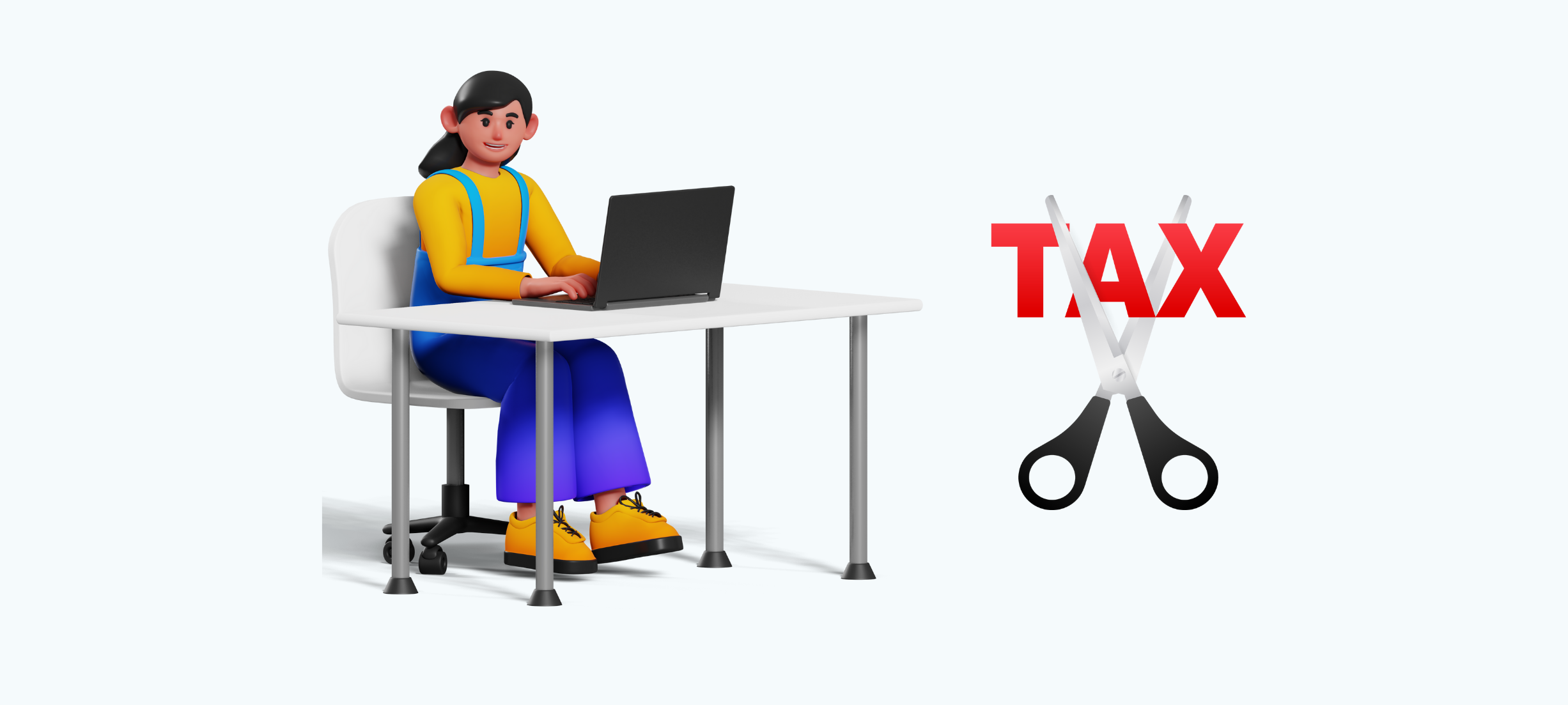
Remember when accounting meant drowning in paperwork and sitting through endless meetings? Those days are behind us. Welcome to the era of remote accounting—an innovative approach that’s changing the game for businesses everywhere.
By using technology to handle financial tasks, remote accounting offers more than just convenience. It’s about cutting costs, staying flexible, and getting real-time insights that help you make smarter decisions. Whether you’re a small business owner or leading a growing company, this modern solution lets you focus on what you do best while leaving the numbers to the experts.
In this blog, we’ll explore how remote accounting is transforming the way businesses manage their finances and why it might just be the upgrade your company needs.
Remote accounting involves delegating accounting tasks to skilled professionals or firms that operate from remote locations. These experts handle a wide range of services, from everyday bookkeeping and payroll management to more complex responsibilities like tax preparation, financial analysis, and detailed financial reporting. By leveraging cloud-based software and advanced communication tools, remote accountants can securely access financial data and collaborate seamlessly with businesses, no matter where they are located.
This approach has gained significant popularity, primarily because of its cost-saving benefits. Businesses can reduce overhead expenses while still accessing top-tier expertise. Additionally, remote accounting services offer unmatched flexibility and scalability, allowing companies to work with professionals from around the globe. This makes it a versatile and efficient solution for businesses of all sizes, from startups to large enterprises.
By integrating advanced technology and providing tailored financial support, remote accounting services empower businesses to streamline operations, improve accuracy, and focus on their core goals. Whether you’re looking to cut costs, ensure compliance, or gain strategic financial insights, remote accounting is an ideal choice for modern businesses.
While remote accounting provides numerous benefits, it also presents certain challenges that businesses must navigate to ensure efficient operations. Here’s a look at these challenges and practical strategies to address them effectively.
The security of sensitive financial data is a top priority in remote accounting. To address data security concerns:
Remote accounting relies heavily on digital communication, and the absence of in-person interaction can lead to misunderstandings. To overcome this:
Collaborating with remote accountants across different time zones can be challenging, especially when scheduling meetings or coordinating workflows. Solutions include:
Some businesses worry about the level of oversight and accountability with remote accountants. To ensure quality:
By proactively addressing these challenges, businesses can reap the full benefits of remote accounting, including cost savings, scalability, and access to expert financial support. With the right tools, strategies, and partners, remote accounting can be a seamless and highly effective solution for businesses of all sizes.

Technology has been the driving force behind the evolution of remote accounting, making it a viable, efficient, and secure solution for businesses worldwide. Without modern innovations, the seamless services that businesses now enjoy would not be possible. Let’s explore the key ways technology has enabled the rapid growth of remote accounting.
Cloud technology has transformed financial management. Platforms like QuickBooks Online, Xero, Zoho Books, and FreshBooks enable accountants and business owners to access financial data anytime, anywhere. These tools offer:
By centralizing data in secure cloud systems, businesses can enjoy greater flexibility and improved collaboration with remote accounting professionals.
Effective communication is essential in remote accounting, and technology bridges the gap between accountants and clients. Tools like Slack, Zoom, Google Meet, and Microsoft Teams enable:
These platforms ensure that teams stay connected and maintain productivity, regardless of physical location.
Data security is paramount in remote accounting, and cloud storage solutions like Google Drive, Dropbox, and specialized document management systems have made it easier to store and share sensitive financial data. Key features include:
These measures ensure that businesses can trust remote accounting firms with their financial information.
Automation has streamlined repetitive tasks in remote accounting, such as:
AI further enhances accounting services by:
By integrating automation and AI, remote accountants can deliver more accurate and insightful financial services.
The adoption of remote accounting services has surged in recent years, driven by technological advancements, changing workforce dynamics, and evolving business needs. Below are key reasons why businesses are increasingly turning to remote accounting solutions.
One of the major benefits of remote accounting is the potential for significant cost savings. By outsourcing accounting tasks, businesses can reduce overhead costs associated with hiring full-time in-house staff. Companies only pay for the accounting services they need, leading to more efficient budgeting and considerable savings.
Remote accounting firms employ teams of highly skilled professionals with expertise across various industries and financial practices. Businesses can tap into this specialized knowledge without the expense of hiring multiple full-time specialists. This gives companies access to top-tier accounting services tailored to their specific needs.
Remote accounting offers unmatched flexibility in terms of working hours and locations. Accountants can operate from any location, which allows businesses to engage professionals across different time zones. This flexibility enhances work-life balance for employees and ensures that financial services are available when needed, regardless of geographic constraints.
Leveraging advanced cloud-based accounting software, remote accounting services can automate routine tasks such as invoicing, payroll processing, and financial reporting. This not only speeds up processes but also reduces errors, allowing for more accurate and timely financial management.
As businesses expand, their accounting requirements evolve. Remote accounting services offer scalability, enabling businesses to easily adjust the level of service they require. Whether a company needs additional support during busy periods or wants to streamline operations as it grows, remote accounting can adapt without the need for costly hiring or layoffs.
Thanks to cloud technology, businesses can access their financial data in real time. This level of transparency supports faster, data-driven decision-making and better financial planning. With up-to-date insights, businesses can respond quickly to market changes and stay ahead of the competition.
Outsourcing accounting services opens the door to a global talent pool. Businesses can work with the best accountants from around the world, bringing diverse perspectives and innovative solutions to the table. This access to global expertise enables businesses to address complex financial challenges with greater efficiency.
As businesses increasingly demand agility, efficiency, and cost-effectiveness in their operations, remote accounting emerges as a game-changing solution. By embracing remote accounting services, companies can reduce costs, gain access to specialized expertise, and enjoy real-time financial insights that enhance decision-making.
At BookkeeperLive, we are pioneers in providing outsourced accounting services. Our experts offer comprehensive accounting solutions designed to meet the unique needs of businesses across different industries. Contact us today for a free consultation and take the next step toward optimizing your financial management.
1. What are remote accounting services?
Remote accounting services provide businesses with financial management, bookkeeping, tax preparation, and advisory services through online platforms and cloud-based tools without the need for an in-house accountant.
2. Are remote accounting services secure?
Yes, reputable remote accounting services like BookkeeperLive use advanced encryption, multi-factor authentication, and secure cloud platforms to protect your financial data.
3. How do I share my financial documents with a remote accountant?
You can securely share documents through encrypted file-sharing platforms, cloud-based accounting software, or the service provider's secure portal.
4. Can remote accountants handle tax filings for my business?
Yes, many remote accounting services specialize in preparing and filing federal and state tax returns for businesses of all sizes, ensuring compliance with U.S. tax laws.
5. What software do remote accountants typically use?
Commonly used software includes QuickBooks Online, Xero, FreshBooks, Wave, and other cloud-based accounting platforms tailored to your business needs.
BookkeeperLive provides affordable bookkeeping and accounting services tailored to your business goals.





No calls, No meetings, No spam. Get started with a free trial by filling out the form.
*NDA included for your data protection.
Copyright © 2025 BookkeeperLive. All rights reserved. Privacy Policy Terms of Use
Please visit our India site to see services designed for your country
Enter the code, fill out the form, and unlock financial clarity with a free trial.